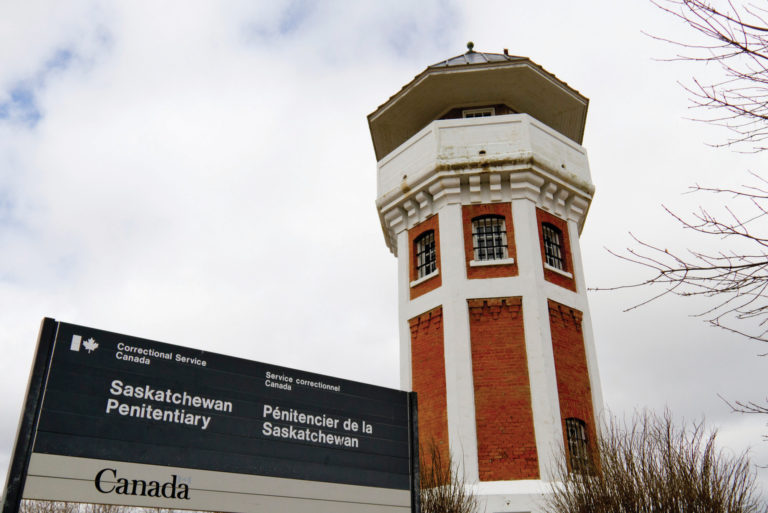
The six-person jury focused on parole officers and their supervisors in their recommendations following an inquest into the 2017 suicide of Daniel James Tokarchuk at the Saskatchewan Penitentiary’s minimum security wing.
Jury members handed down six recommendations following three days of testimony at Plaza 88 in Prince Albert, plus a full day of deliberations. The biggest recommendation called on parole supervisors to make sure officers communicated clearly with inmates before revoking escorted or unescorted temporary absences (ETAs and UTAs) outside the corrections facility.
Jury members heard testimony on Tuesday from health experts who treated Tokarchuk months before he committed suicide. They said Tokarchuk was depressed after his temporary absences were cut short by his parole officer, who was worried he was stealing from the Salvation Army. Parole officers were also concerned he wasn’t being upfront about a relationship he established with a woman during his temporary absences.
On Thursday, the jury’s fourth recommendation called on parole officers to do a better job of giving inmates “sufficient warnings as to the offending conduct, and a reasonable opportunity at corrective action,” before suspending or ending temporary absences. The jury said those warnings should be provided in writing, and done on a progressive disciplinary basis.
The jury also recommended that supervisors remove parole officers from handling inmate files if they can’t resolve issues in a timely manner.
“Such files should be received and audited on a regular basis,” the recommendation reads. “In the event that issues, problems or unreasonable delays have been identified, such supervisors should readily consider providing appropriate direction to the involved PO or reassign the file.”
The other biggest recommendation focused on depression medication, and how doctors prescribe treatments. A family physician who made appointments at the Sask. Pen testified that he signed off on a request to stop providing Tokarchuk with the antidepressant Mirtazapine because Tokarchuk wasn’t taking it. On Thursday, the jury recommended that a physician reassess all inmates before altering prescription medication orders when the patient suffers from mental health concerns.
The jury also recommended that corrections officers carry 9-1-1 cutting tools at all times while patrolling the minimum security wing. The tools are designed to help guards cut down prisoners who hang themselves, but the corrections officers who discovered Tokarchuk’s body decided to use a kitchen knife instead. All three guards on duty said they did not feel comfortable using the 9-1-1 tools, and said they received little to no training with them.
Other recommendations called for corrections officers to have more freedom in how they conduct their checks at night. The jury said bed checks should be less predictable. The corrections officers who testified said Corrections Service Canada policy left them little wiggle room when it came to timing their checks. They said the policy made it easy for inmates to figure out when no one was watching, and for how long.
The jury also recommended that corrections officers use their handheld radios during emergency events, instead of the phones inside the inmate houses.
Witnesses described Tokarchuk as an easy-going but private individual who mostly kept to himself. They said he expressed regret for the actions that landed him in prison, and was eager to start a new life after he finished his sentence.
Medical professionals who testified, like penitentiary psychologist Dr. Robin Finlayson, told the inquest Tokarchuk suffered from depression, and was upset about having some privileges revoked due to his behavior. However, Finlayson also said Tokarchuk never engaged in any self-harm, and seemed to have everything under control. Finlayson described Tokarchuk’s death as coming “totally out of left field.”
Tokarchuk was serving an indeterminate sentence for multiple offences, including second degree murder, when he died. He was last seen watching TV before heading to bed early in the morning of June 7, 2017. Corrections workers found him hanging in his own room after 3 a.m. He was transported to hospital, and declared dead at 4:24 a.m. An investigation by Saskatchewan’s forensic pathologist showed no drugs or alcohol were in his system at the time of death. Tokarchuk was 44-years-old.
